A new skill I am developing through this internship is going through interviews for information and treating them as a learning opportunity. I am not naturally accustomed to interviews, especially leading interviews but developing the skills to create a specific set of questions that give rise to valued insight, and cooperating with your subject in order to get the most out of each encounter is tremendously useful.
Develop a list of questions
This seems rudimentary, and it is but rudiments are, but it is an incredibly important element to the creation of a good interview. Much like in a project where you are working towards a big end goal, creating and knowing what exact questions you will be asking and what you will be focusing on throughout the interview makes for clear, insightful, and engaged conversation.
Categorize your questions
This step helps to keep you on track during your discussion. Firstly, being able to break your interview down into distinct sections means that you have thought about what you want out of your interviewee. In addition to this, being able to focus on a particular topic for a period of time means that your interviewee is exclusively focused on the same topic – you’re not jumping them from one thing to another. For example, if I were talking about grants and grant applications in one question, I wouldn’t switch to talking about different types of theatre immediately. It’s good to keep all of your related questions together, so that you can dive deep into a topic.
Go With the Flow
You can’t account for what your interviewee is going to think about or say – tangents are more than likely! That is okay, and trying to reel them back in each time will make for a rigid interview. It’s more fruitful for both of you to relax into it. Understand that you have a lovely categorized arrangement of questions that you will utilize when the interview gets unfocused, but until then, actually respond to them and what they are bringing forward. His or her experience in whatever field you are investigating is individualized; don’t try to make the discussion a routine for each person you talk to.
Make it personal
Know who you’re talking to! Research them beforehand, determine what they’re focus is and create questions around their own personal experience. That part of the discussion will be the most personal and, I guarantee, the most interesting.
Considering my internship with The Toronto Ward Museum, and their focus on individual narratives, becoming more accustomed to what types of questions make for the best, most honest, most lively answers is a skill to be focused upon. You're talking to a seasoned professional, enjoy the learning opportunity!
